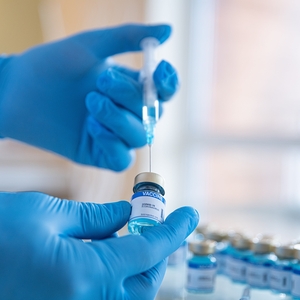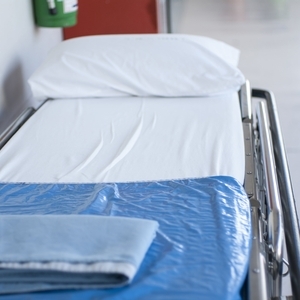Forget the Pitchers - The H.E.A.T. Team Brought the Real Heat in October
ABSTRACT: In October, the Department of Justice's special health care fraud prevention team announced settlements of more than $719 million. The settlements involved allegations of illegal kickbacks, unnecessary medical treatments and premature implantations of medical devices.
October is a magnificent month. The leaves change, bringing forth gorgeous colors seen only in Autumn. And then as temperatures drop, the ghosts and goblins come out to play. And of course we have post-season baseball. During the World Series this year, Mets pitcher Noah Syndergaard garnered a lot of attention by throwing the first pitch of Game 3 high and tight past Alcides Escobar. Mr. Syndergaard later explained that he intended the pitch to send a message. Although they may not admit it, the message might have worked because it was the only game the Royals lost in the World Series.
But this October, none of the fastballs thrown by the post-season pitchers compare to the heat brought by the Department of Justice’s Health Care Fraud Prevention and Enforcement Action Team initiative (the DOJ ignores the “C” in “Care,” the “F” in “Fraud” and the “P” in “Prevention” and simply calls it the “HEAT initiative”). In October 2015, the HEAT team sent messages louder than a high and tight fastball to the health care industry.
In October, the first month of the 2016 fiscal year, the DOJ announced HEAT initiative settlements totaling $719,750,000. The settlements ranged from $3 million by a hospice group up to $256 million against a urine drug and genetic testing laboratory. Mixed in were two other nine figure settlements. First, there was a $125 million global settlement with Warner Chilcott U.S. Sales LLC for alleged Anti-Kickback and False Claims Act violations. Second, on the last business day of the month, the DOJ announced that 457 hospitals would pay over $250 million to resolve False Claims Act allegations concerning the implantation of cardioverter defibrillators.
Not only do the settlements range widely in amounts, they also cover a broad scope of alleged improper conduct. For instance, the hospice group settled claims it had violated the False Claims Act by submitting claims for patients who were not terminally ill. Somewhat similarly, the DOJ announced on October 9 that an Ohio hospital agreed to pay $4.1 million to settle allegations that it violated the False Claims Act by billing for medically unnecessary spine surgeries. This settlement resulted from the alleged activities of a doctor from Mason, Ohio, who was arrested on charges of health care fraud in 2013 and then fled the country and remains at large. A urine and genetic testing company agreed to pay $256 million for allegedly billing for unnecessary testing and providing physicians with free items in exchange for testing referrals to the company.
Other October settlements offered proof the DOJ is aggressively pursuing claims against parties on all sides of alleged kickback schemes. For instance, on October 7, the DOJ announced the country’s second-largest nursing home pharmacy agreed to pay $9.25 million to settle claims it solicited and accepted kickbacks from Abbott Laboratories in exchange for promoting Abbott’s anti-epileptic medication, Depakote. The pharmacy’s settlement resolved the role it allegedly played in a kickback scheme for which Abbott entered into a $1.5 billion global settlement back in May 2012. Although it took a few years, the Department brought the heat to the pharmacy for the alleged kickback scheme with Abbott.
Later in the month, on October 29, the Department made headlines by announcing that Allergan’s indirect subsidiary, Warner Chilcott U.S. Sales LLC, had pled guilty to a single felony count of paying kickbacks to physicians throughout the United States. The guilty plea was part of a global settlement worth $125 million. The DOJ’s announcement is noteworthy not just for the amount but also because on the same day a former Warner Chilcott president was indicted on a charge of conspiring to pay kickbacks. His indictment followed the arrest earlier in the month of a Massachusetts physician the DOJ charged with accepting kickbacks in exchange for purchasing and prescribing certain osteoporosis medications. Earlier in the year, two former Warner Chilcott district managers had pled guilty to various charges associated with the alleged kickback scheme and a third former district manager had also been charged. In short, with the activities in October, the Department did what it has threatened to do for years – go after the companies, doctors, field personnel and company executives connected with a kickback investigation.
The final settlement of the month resulted from a long-standing and well-publicized investigation by the Department. The settlement involved 457 hospitals in 43 states and resulted in a settlement of more than $250 million. This settlement grabbed headlines for years because it involved the DOJ digging through medical records to challenge the decisions of doctors to implant cardioverter defibrillators (ICDs) in patients who technically did not qualify for implantation under Medicare’s National Coverage Decision for ICDs. Under the NCD, ICDs should not be implanted in a patient until 40 or more days after the heart attack nor within 90 days of of a bypass or angioplasty procedure. According to the press release announcing the settlement, the DOJ used a “panel of leading cardiologists” and the “review of thousands of patient charts” to conduct the investigation. Although the press release states the DOJ recognizes and respects the judgment of physicians, this settlement demonstrates the DOJ will challenge medical decisions.
October was an extremely hot month for the healthcare industry thanks to the HEAT team. The DOJ came out throwing high hard ones all month. Although the baseball season has ended, the odds that the HEAT team cools off seem remote. The HEAT initiative began in 2009 and by the end of October claimed to have recovered over $26.2 billion (yes, with a “b”) through False Claims Act cases. As of now, the HEAT team shows no signs of arm fatigue.

All Claims Means ALL: The PREP Act Provides Immunity in COVID-19 Vaccination Case ...

Jackson County, Missouri Jury Rejects 3M Surgical Blanket Infection Claims ...
About Drug / Device Law Blog
Baker Sterchi's Drug / Device Law Blog examines topics and legal developments of interest to the drug and device industry. Learn more about the editor, Paul Penticuff, and our Drug and Device practice.
Subscribe via email
Subscribe to rss feeds
RSS FeedsABOUT baker sterchi blogs
Baker Sterchi Cowden & Rice LLC (Baker Sterchi) publishes this website as a service to our clients, colleagues and others, for informational purposes only. These materials are not intended to create an attorney-client relationship, and are not a substitute for sound legal advice. You should not base any action or lack of action on any information included in our website, without first seeking appropriate legal or other professional advice. If you contact us through our website or via email, no attorney-client relationship is created, and no confidential information should be transmitted. Communication with Baker Sterchi by e-mail or other transmissions over the Internet may not be secure, and you should not send confidential electronic messages that are not adequately encrypted.
The hiring of an attorney is an important decision, which should not be based solely on information appearing on our website. To the extent our website has provided links to other Internet resources, those links are not under our control, and we are not responsible for their content. We do our best to provide you current, accurate information; however, we cannot guarantee that this information is the most current, correct or complete. In addition, you should not take this information as a promise or indication of future results.
Disclaimer
The Drug / Device Law Blog is made available by Baker Sterchi Cowden & Rice LLC for educational purposes only as well as to give you general information and a general understanding of the law, not to provide specific legal advice. Your use of this blog site alone creates no attorney client relationship between you and the firm.
Confidential information
Do not include confidential information in comments or other feedback or messages related to the Drug / Device Law Blog, as these are neither confidential nor secure methods of communicating with attorneys. The Drug / Device Law Blog should not be used as a substitute for competent legal advice from a licensed professional attorney in your state.











